UK supermarkets have improved – but not enough, says Oxfam
Supermarkets aren’t doing enough to ensure the food on our tables doesn’t come at the expense of human suffering and exploitation. That was the verdict of last week’s annual Oxfam scorecard for six of the UK’s biggest.
Yet the table is also notable for improvements across the board since last year. Of the four countries where Oxfam conducts its ‘Behind the Barcodes’ campaign – the others being the Netherlands, Germany and US – the UK is the only one where each of the supermarkets assessed has raised its score.
So what does the table really say about UK supermarkets’ performance on human rights?
Oxfam gives each supermarket a separate score for transparency, worker conditions, treatment of small-scale farmers and tackling discrimination against women, plus an overall score. To arrive at the score for each criteria, Oxfam examines the retailers’ published policy for ‘internationally recognised indicators of good practice’ on human rights. For gender discrimination, for example, one indicator is that the company recognises and discloses specific challenges that disproportionately affect women and seeks to understand the causes.
The companies are given points for indicators met, and the scores are the percentage of available points achieved.
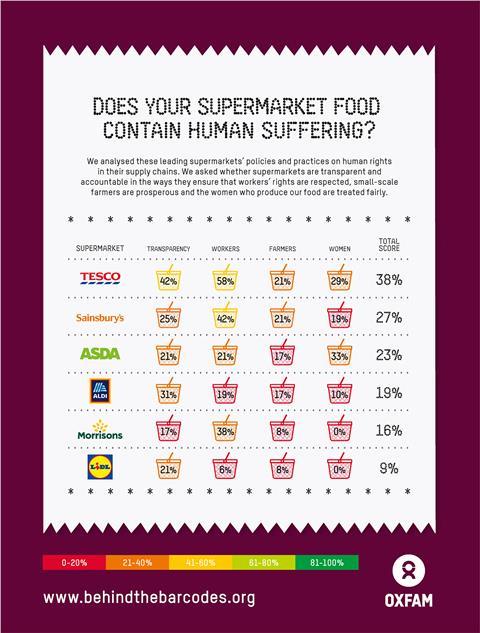
Oxfam launched the campaign in 2018, off the back of its Ripe for Change report, highlighting ‘widespread human suffering’ in supermarket supply chains around the world, ‘from forced labour aboard fishing vessels in southeast Asia to poverty wages on Indian tea plantations’.
Ripe for Change
According to Oxfam’s ethical trade manager Rachel Wilshaw, all the supermarkets broadly accepted Ripe for Change’s findings last year. “They didn’t push back on our methodology, or professionalism of the research, or how we wrote it up,” she says. She takes the across-the-board improvement as a sign all the supermarkets have “engaged with Oxfam”. “They basically get it,” she adds.
Getting it most, based on the scores, is Tesco. Not only is it top for the second year, it’s also doubled its lead over second-placed Sainsbury’s.
“There are a few areas where Tesco has gone beyond the others,” says Wilshaw. “They’re the only ones that have committed to explore the issue of a living wage by identifying credible living wage benchmarks and publishing examples within their supply chain of the gap.
“They’ve put a lot more information into the public domain and they’re the only supermarket that formally signed up to the United Nations Women’s Empowerment Principles.”
Sainsbury’s, while second, improved less as a result of “omissions we would have thought were fairly basic,” says Wilshaw. “They’re the only one of the six companies that have not made an explicit commitment to the UN Guiding Principles on Business and Human Rights.”
At the other end of the table, that precise commitment helped Aldi leap from last to fourth. Aldi has also published its human rights policy and named the executive responsible for overseeing it, meeting more of Oxfam’s indicators.
It’s left Lidl last – and it’s a sign of overall improvement that Lidl has dropped down the table despite an improved score.
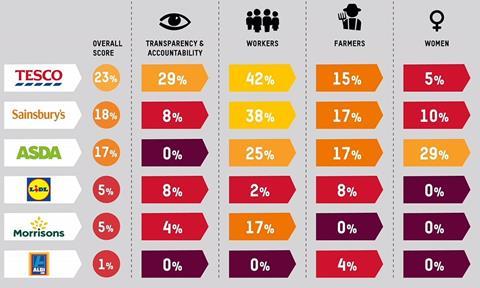
Too late to contribute to this year’s score, Lidl this week announced it would conduct impact assessments on supply chain conditions, a commitment already made by Aldi and Tesco. But along with Morrisons, Lidl has yet to make required commitments on gender equality, scoring 0% for women as a result. “They don’t even [publicly] recognise it as a problem,” says Wilshaw.
No one should be patting themselves on the back though, says Wilshaw. With 38%, in amber on Oxfam’s scorecard, even Tesco is well shy of the green area above 60% where the charity would like to see it.
Are the expectations realistic? Wilshaw argues Oxfam’s previous, similar campaign, Behind the Brands, shows they are. “Over two or three years there were companies that started on amber or red and got into yellow or green, particularly Unilever and Nestlé,” she says. “So we know it can be done.”







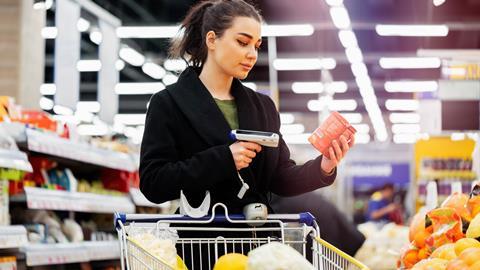
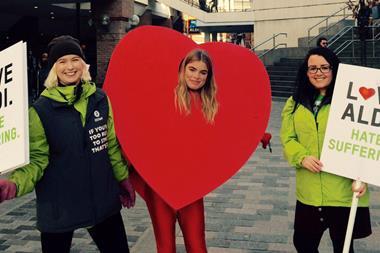
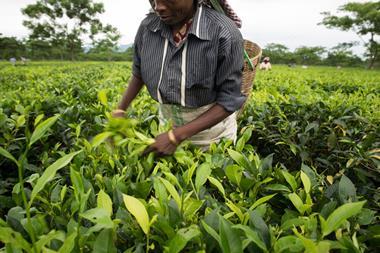
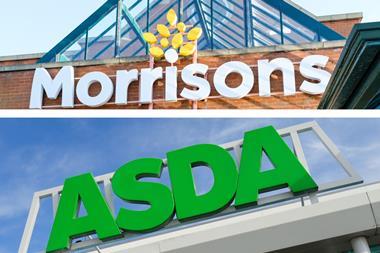
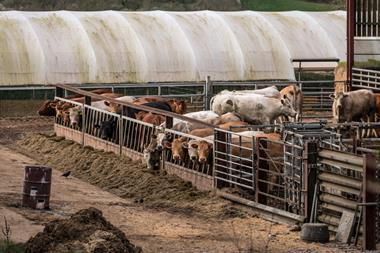
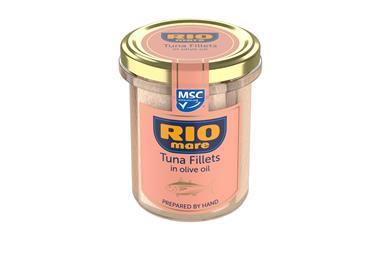
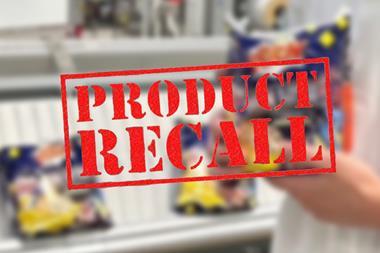






No comments yet